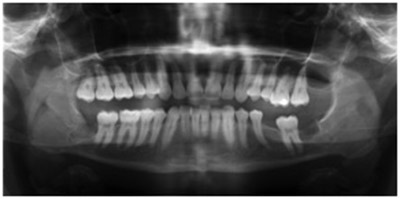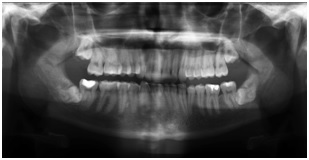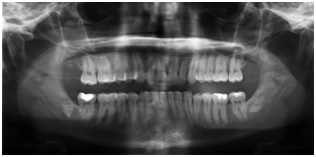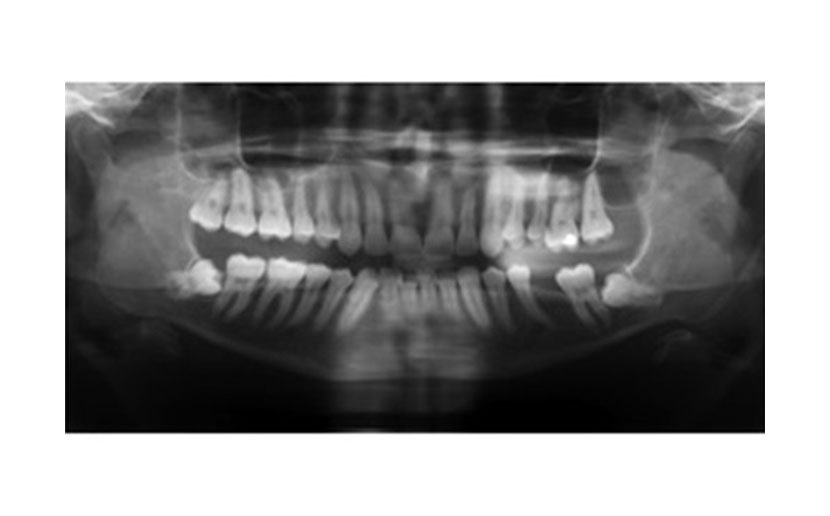WHEN IS NECESSARY TO REMOVE WISDOM TEETH
Why wisdom teeth can cause so much trouble, unlike the other teeth?
The reason is in their position: wisdom teeth are “the last” and often there is physically not enough space for their growth, with several possible problems:
- Altered growing axis and partial impaction in the bone
- It can be difficult to obtain an accurate hygiene of the surrounding area. Bacteria can penetrate in this area causing periodontal inflammation and bone resorption
- Possible cavities involving the wisdom teeth and the second molars
Wisdom teeth are often neglected although they start giving minor symptoms (vague pain in the area, difficulty on chewing), until the situation degenerates with an infection (very strong pain, swelling) or turns out the adjacent tooth is compromised. Only an oral surgeon, with the proper training and experience, can assess and advise if wisdom teeth must be removed. It is possible to extract more than one wisdom tooth at the time depending on the complexity of the operation and the patient’s general condition.

A correct approach to evaluate if the extraction is indicated is to require a radiographic exam (orthopantomography) to the patient and in cases that require it (For example when there is a contiguity of the wisdom tooth with the inferior alveolar nerve) also a CT scan. The extraction of the wisdom tooth fully or partially impacted is a real surgical procedure and, as such, its success and consequences depend on the initial conditions and especially on the preparation and skills of the surgeon. It would be a mistake to keep your wisdom teeth only for fear of the operation. With the right precautions, and being informed about your situation, the extraction of wisdom teeth can be an investment in your own health.
CORONECTOMY and PIEZOSURGERY
When the wisdom tooth is close to the inferior alveolar nerve and the risk of damaging the nerve during the extraction is high, it is possible to use a different technique that consists in removing the crown of the tooth (CORONECTOMY) leaving the roots into the bone. There are several studies that confirm the efficacy of this procedure. In this case it is necessary to consult an oral surgeon who has gained the necessary experience to proceed as indicated. This operation aims to eliminate all the complications related to the presence of the wisdom tooth (carious lesions of the adjacent tooth, periodontal disease, infection, cysts) with no risk on the integrity of the nerve.
Un nuovo strumento ad ultrasuoni (PIEZOSURGERY) rende possibile eseguire questa procedura ed anche l’estrazione completa in maniera mini-invasiva, riducendo notevolmente il traumatismo legato all’utilizzo classico di trapano e frese e, quindi, migliorando notevolmente il decorso post-operatorio.






